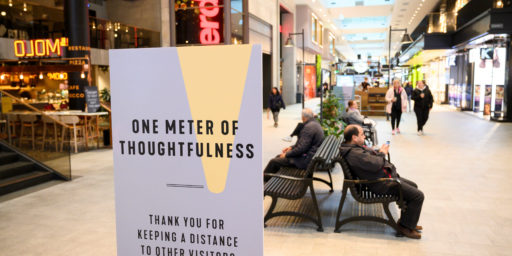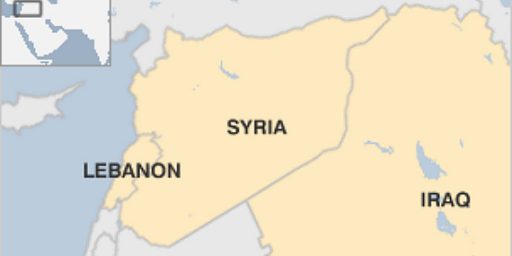Sweden Uses Text Messaging to Speed Lebanon Evacuation
The Swedish government made massive use of text messaging to help rally its citizens for evacuation from Lebanon, which they accomplished with far greater efficiency than other countries.
By Thursday morning, almost all Swedish citizens had been evacuated from Lebanon after a gruelling four-day, round-the-clock operation coordinated by the Ministry for Foreign Affairs in Stockholm. Thoroughout the process there have been reports of chaos, disorganisation and a lack of information, blamed partly on the fact that Sweden only has a consulate, rather than an embassy, in Beirut. But the Swedish evacuation effort, supported by mobile phone technology, has been held up as a “model of order” by commentators in other countries such as Canada, Australia and the US which, on Thursday, were only beginning their own evacuations.
The Toronto Star described how many Canadian families gathering in the sweltering heat were subjected to “the stress of seeing children or spouses left off the list” followed by hours of arguing. “At about the same time, Swedish citizens had gathered in an air-conditioned hotel,” wrote the paper. “Their names were placed on a list only after they boarded buses that shuttled them to a first boat, which carried 1,600 Swedes to safety, and a second one that ferried away 300.”
The Canberra Times reported that the Australian effort was being unfavourably compared with that of a number of countries including Sweden, while USA Today slammed America’s apparent inaction, pointing out that three ships had been chartered by Sweden to carry citizens to Cyprus.
According to foreign ministry spokeswoman Nina Ersman, text messaging has been a major tool in the Swedish evacuation operation. “In the last week we have sent out five text messages to everyone in Lebanon who is registered with a Swedish mobile network,” she told The Local. Telia’s Jan Sjöberg explained that its mobile subscribers who were in Lebanon were sent an SMS as early as last Friday, which told them that an evacuation would be taking place. Since then, further messages have told people to get to a certain hotel at a certain time, depending upon their priority status. “The GSM technology allows us to do this,” said Sjöberg. “We have roaming agreements with two operators in Lebanon. Around 300 of our customers who were in Lebanon would have got the message as soon as they turned on their phones. We also told them that all calls and text messages to Sweden would be free.”
We’ve known for years that the Europeans are ahead of us in the deployment of cellular technology. They’ve apparently lapped us in figuring out how to best use it as well.
Of course, Americans would be complaining about the loss of privacy in having the government able to track us this easily. . . .





According to your story they were not tracked but called. Didn’t the US vote in favour of allowing marketeers call everybody they wanted?
Kudo’s to the swedes. I’m pretty sure we would have had a hard time too with so many people (we only had to evacuate a few hundred)
DM: Actually, we passed a federal Do Not Call list a few years back allowing people to opt out of telemarketing and imposing heavy penalties on those who called.
And they at least were able to figure out which cell phone holders were in Lebanon, so it’s a form of tracking.
I read ‘being registred’ as ‘having a lebanese address to send the phonebills to’ 🙂
Glad the telemarketing is not as bad as I remembered.
Ah, no I now see that they send messages to everyone via roaming agreements. Smart.
I got curious and googled about the Dutch procedure. Appearantly we used sms too. Also because email is not handy when electricity is sporadic. The Dutch blogger I linked to shows the (Dutch) messages, and says that the embassy appointed contactpersons (he was one) who would call everybody who didn’t have a mobile phone to repeat the sms text to them. He also said the embassy only used the sms numbers given to them by the owners. In his post from today he says that he cannot use his mobile anymore though, because the provider had been bombed.
I actually hadn’t thought about the information logistics before your post.